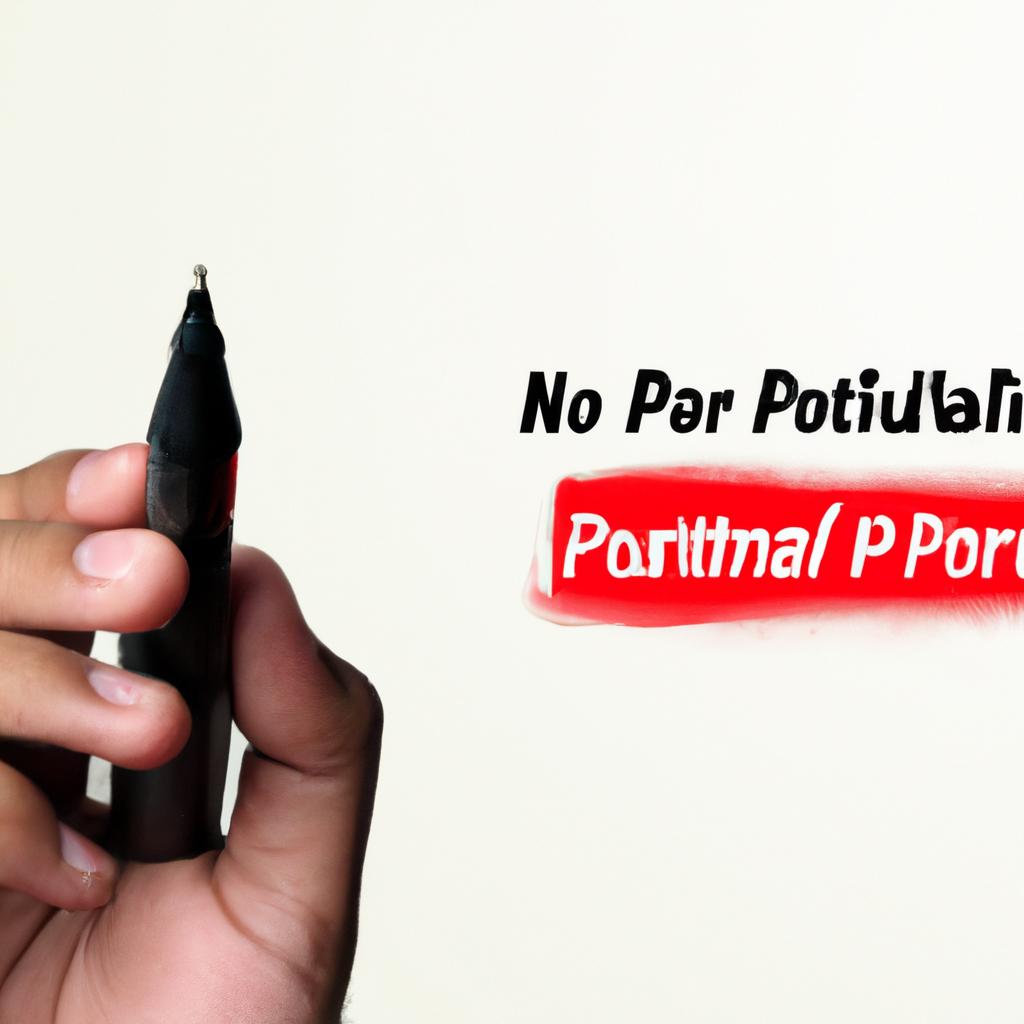In navigating the complex realm of estate planning, individuals often weigh the pros and cons of various legal tools in order to ensure their assets are distributed according to their desires. While wills and trusts are both valuable mechanisms for achieving this goal, it is important to recognize that each comes with its own set of advantages and disadvantages. In this article, we will delve into the intricacies of estate planning to explore one notable disadvantage of a will when compared to a trust. As seasoned practitioners in the field of estate law, the experts at Morgan Legal Group in New York City are well-equipped to provide valuable insights on this topic.
– Limited Privacy and Increased Probate Time
One key disadvantage of a will compared to a trust is the limited privacy it offers. When a will goes through probate, the contents become public record, meaning anyone can access and review the details of your estate plan. This lack of privacy can expose sensitive information about your assets, beneficiaries, and financial decisions to the public, which may not align with your desire for confidentiality.
In addition to limited privacy, another drawback of a will is the increased probate time it entails. Probate is the legal process through which a will is validated and assets are distributed to beneficiaries. This process can be lengthy and complex, involving court supervision, legal fees, and potential disputes among heirs. As a result, the probate process can delay the distribution of assets to beneficiaries, causing frustration and uncertainty for those involved.

– Lack of Flexibility and Control
In terms of estate planning, one disadvantage of a will compared to a trust is the lack of flexibility and control it provides. With a will, you are limited in how your assets are distributed after your passing. The instructions outlined in a will must be followed, which can sometimes lead to unforeseen complications and disputes among beneficiaries.
On the other hand, a trust allows for more flexibility and control over your assets. Trusts are customizable and can be tailored to fit your specific needs and wishes. You have the ability to dictate exactly how and when your assets are distributed, providing you with more peace of mind and assurance that your wishes will be carried out.

– Potential for Disputes and Challenges
One disadvantage of a will over a trust is the potential for disputes and challenges among beneficiaries. When a will is used to distribute assets, it typically goes through the probate process, which can be time-consuming and costly. During probate, the will becomes a matter of public record, allowing interested parties to contest its validity. This can lead to family members and other beneficiaries disputing the terms of the will, potentially resulting in lengthy legal battles and strained relationships.
Moreover, because a will must be proven in court before assets can be distributed, there is a higher risk of challenges to its validity. Beneficiaries may argue that the testator was not of sound mind when the will was created, or that there was undue influence from another party. These disputes can delay the distribution of assets, causing further stress and uncertainty for loved ones left behind. In contrast, a trust allows for assets to be distributed privately and outside of probate, reducing the likelihood of disputes and challenges.
Q&A
Q: What is one disadvantage of a will over a trust?
A: While wills are a common estate planning tool, one disadvantage compared to trusts is that they must go through probate court, which can be time-consuming and costly.
Q: Why is probate court a disadvantage for wills?
A: Probate court can tie up assets for months or even years, delaying the distribution of your estate to your beneficiaries. Additionally, probate can incur significant legal fees and court costs, reducing the overall value of your estate.
Q: Can a trust avoid probate court altogether?
A: Yes, one of the main benefits of a trust is that it allows for the transfer of assets immediately to designated beneficiaries upon your passing, without the need for probate court involvement.
Q: Are there any other disadvantages of wills compared to trusts?
A: In addition to probate costs and delays, wills are also subject to public scrutiny, as they become a matter of public record once filed with the court. This lack of privacy can be a concern for those who wish to keep their estate distribution private.
Q: How can I determine if a will or trust is better for my situation?
A: It is recommended to consult with an estate planning attorney to evaluate your specific needs and goals. They can help you understand the advantages and disadvantages of wills and trusts and determine the best option for your estate plan.
To Conclude
In conclusion, while wills can be an important tool for estate planning, it is important to recognize the limitations they have compared to trusts. By understanding the disadvantages of relying solely on a will, individuals can make more informed decisions about how to best protect their assets and provide for their loved ones. Ultimately, each person’s circumstances will determine whether a will or trust is the most appropriate option for their estate planning needs. It is always recommended to seek advice from a legal professional to ensure that your wishes are carried out according to your preferences.
 Are you thinking about creating an estate plan but feeling overwhelmed by the options? Two common estate planning tools are wills and trusts. While both serve the purpose of distributing assets to loved ones after one’s passing, there are distinct differences between these documents. One question often asked is, what is one disadvantage of a will over a trust? In this article, we will explore the answer to this question and provide valuable information to help you make an informed decision about your estate planning needs.
Are you thinking about creating an estate plan but feeling overwhelmed by the options? Two common estate planning tools are wills and trusts. While both serve the purpose of distributing assets to loved ones after one’s passing, there are distinct differences between these documents. One question often asked is, what is one disadvantage of a will over a trust? In this article, we will explore the answer to this question and provide valuable information to help you make an informed decision about your estate planning needs.
Before we dive into the disadvantages of a will compared to a trust, let’s first understand the fundamentals of these documents.
What is a Will?
A will is a legally binding document that outlines how a person’s assets will be distributed after their death. It also appoints an executor, a person responsible for managing the estate, and names guardians for minor children if applicable. A will comes into effect after a person’s death and goes through probate, a legal process that validates the will and oversees the distribution of assets.
What is a Trust?
A trust is a legal arrangement in which an individual, the grantor, transfers assets to a trustee to manage on behalf of their beneficiaries. The trustee holds and distributes the assets according to the terms outlined in the trust. A trust can be created during a person’s lifetime, known as a living trust, or through a will, known as a testamentary trust.
Now that we have a basic understanding of wills and trusts, let’s explore the disadvantages of a will compared to a trust.
1. Probate Process
Probate, the legal process that takes place after a person’s death, can be a long and costly process. During probate, the court validates the will, pays outstanding debts, and distributes assets according to the will’s instructions. This process can take months to years, depending on the complexity of the estate and any disputes that may arise.
On the other hand, a trust allows beneficiaries to receive assets immediately after the grantor’s passing, without going through probate. This saves time and money and allows for more privacy since the probate process is a matter of public record.
2. Lack of Privacy
As mentioned, the probate process is a matter of public record. This means that anyone can access and review the details of a person’s estate, including assets, debts, and beneficiaries. This lack of privacy can be uncomfortable for some families and may lead to disputes or unwanted attention.
In contrast, a trust provides more privacy since it does not go through probate. The details of a trust remain between the beneficiaries, the trustee, and the grantor (if they are still alive).
3. Limited Control Over Assets
A will only becomes effective after a person’s passing. This means that they have no control over how their assets will be managed or distributed after their death. This lack of control can be a disadvantage, especially in cases where the beneficiaries are minors or lack financial responsibility.
In comparison, a trust allows the grantor to have more control over their assets, even after they have passed away. For example, a grantor can specify when and how their beneficiaries will receive their inheritances, such as reaching a certain age or achieving specific milestones.
4. Potential for Disputes
When a will goes through probate, it is subject to contestation by potential beneficiaries or other interested parties. This can lead to lengthy legal battles, which not only delay the distribution of assets but can also deplete the estate’s value due to legal fees.
A trust, on the other hand, is less likely to be contested since it does not go through probate. This can save time, money, and avoid any potential family conflicts.
5. Limited Protection against Incapacity
One aspect of estate planning is planning for the possibility of becoming incapacitated. A will outlines the distribution of assets after a person’s death but does not address what will happen in the event of incapacity. Without a plan in place, the court may have to appoint a guardian to manage the person’s assets, leading to unnecessary expenses and potential disputes.
In contrast, a trust can provide protection against incapacity by appointing a successor trustee to manage the person’s assets in the event they become unable to do so themselves.
Conclusion
While a will has its advantages and can serve as a suitable estate planning tool for some individuals, there are distinct disadvantages compared to a trust. The probate process, lack of privacy, limited control over assets, potential for disputes, and limited protection against incapacity are all important factors to consider when deciding between a will and a trust.
Ultimately, the best estate planning decision will depend on your specific circumstances, goals, and preferences. It is essential to consult with an experienced estate planning attorney to determine the most suitable option for you and your loved ones.
Hopefully, this article has provided valuable information to help you make an informed decision about your estate planning needs. Remember, it is never too early to start planning for the future and securing your legacy for your loved ones.

